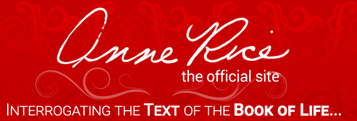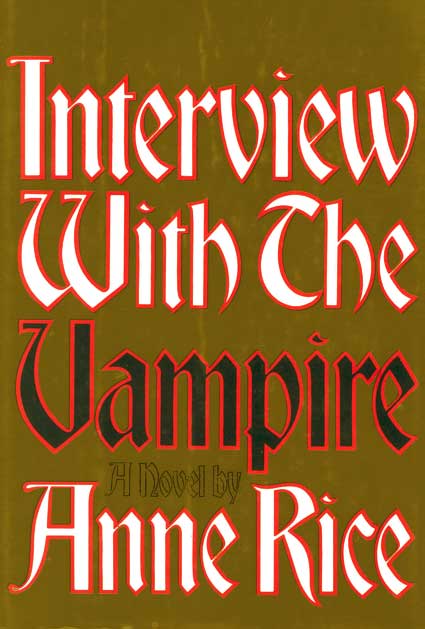This is the story of Louis, as told in his own words, of his journey through mortal and immortal life. Louis recounts how he became a vampire at the hands of the radiant and sinister Lestat and how he became indoctrinated, unwillingly, into the vampire way of life. His story ebbs and flows through the streets of New Orleans, defining crucial moments such as his discovery of the exquisite lost young child Claudia, wanting not to hurt but to comfort her with the last breaths of humanity he has inside. Yet, he makes Claudia a vampire, trapping her womanly passion, will, and intelligence inside the body of a small child. Louis and Claudia form a seemingly unbreakable alliance and even "settle down" for a while in the opulent French Quarter. Louis remembers Claudia's struggle to understand herself and the hatred they both have for Lestat that sends them halfway across the world to seek others of their kind. Louis and Claudia are desperate to find somewhere they belong, to find others who understand, and someone who knows what and why they are.
Louis and Claudia travel Europe, eventually coming to Paris and the ragingly successful Theatre des Vampires--a theatre of vampires pretending to be mortals pretending to be vampires. Here they meet the magnetic and ethereal Armand, who brings them into a whole society of vampires. But Louis and Claudia find that finding others like themselves provides no easy answers and in fact presents dangers they scarcely imagined.
Originally begun as a short story, the book took off as Anne wrote it, spinning the tragic and triumphant life experiences of a soul. As well as the struggles of its characters, Interview captures the political and social changes of two continents. The novel also introduces Lestat, Anne's most enduring character, a heady mixture of attraction and revulsion. The book, full of lush description, centers on the themes of immortality, change, loss, sexuality, and power.
Interesting Fact:
The original manuscript for Interview was quite different than the final published version. After the rights had been sold to Knopf, Anne rewrote the book, adding the entire Theater of the Vampires section and bringing Lestat back after his supposed death by fire.
Study Questions for Interview With The Vampire
- Over the years Rice has been asked why she chose the vampire as her hero. If you were Rice, how would you answer the question?
- Why did she write a metaphysical thriller using B-movie motif?
- What is postmodernism? How is Interview With The Vampire a postmodern novel?
- Discuss in what ways, if any, Rice’s characters transcend gender. Are the characters involved in polymorphous sexuality? Why?
- Elucidate the significance of Louis’ argument to Lestat: “It was only when I became a vampire that I respected for the first time all of life. I never saw a living, pulsing human being until I was a vampire. I never knew what life was until it ran out in a red gush over my lips, my hands!” Rice cites, in theSelected Bibliography section of her website, that one book in particular helped to inspire her Vampire Chronicles, which was Charles Dickens, A Christmas Carol. Explain the similarities between the Louis’s argument to Lestat and Jacob Marley’s argument to Ebenezer Scrooge.
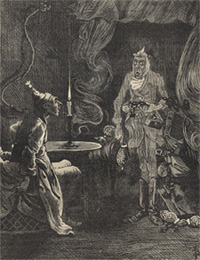
- After Louis gives Madeleine the dark gift of the vampire, Louis speaks to Claudia of the experience for him. “What died tonight in this room was not that woman... What has died in this room tonight is the last vestige in me of what was human.” Discuss for whom did he let himself die. Why was it necessary that his humanity die?
- What is eighteenth century New Orleans like? How is the nineteenth century different? How does Rice describe the city in those times? What appeals to you as a reader?
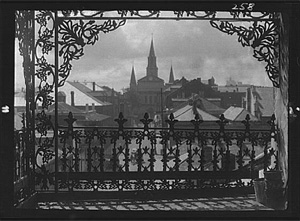
- Daniel and Madeleine both beg the same request from Louis. Madeleine speaks: “If you knew how I long to have your power; I’m ready for it, I hunger for it!” Daniels speaks: “If you were to give me that power... Give it to me... Make me a vampire now!” If Interview With The Vampire were a novel written in the nineteenth century, and by consequence subjugated to those same morals, would their requests be typical of Victorian Era’s norms?
- Louis asks Armand if he is the leader of the vampire coven at the Théâtre des Vampires. Armand replies: “Not in the way you mean leader... But if there were a leader here, I would be the one.” What does Armand mean?
- Louis noticed the painting The Fall of the Angels by Bruegel and the Triumph of Death as well as he entered Armand’s room in Théâtre des Vampires. What other painters does Rice mention? How does art contribute to a more vivid atmosphere of the narrative? Does the novel prompt the reader to see these works for themselves? Louis likens one painting in particular to Botticelli. Specifically, in what ways is this painting meaningful for him?
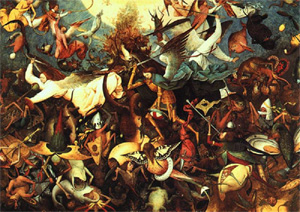
- The style of Bram Stoker’s Dracula employed a first person epistolary form from several characters, which was atypical of much Romantic literature and it avoided a narration of third person omniscience. Interview With The Vampire chiefly avoids third person omniscience also as Louis tells the story of his vampiric life. Discuss how the internal subjectivity revealed in first person narration creates a successful character. If it were told entirely in the third person, would Interview have been as enjoyable a novel?
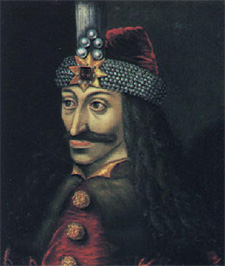
- There is not one vampire that Louis describes as unattractive: all move with preternatural grace and beauty. Why does Claudia consider herself unprepossessing?
- Also in the Selected Bibliography section of her website, Rice cites Mary Shelley’s Frankenstein. However, Rice did not read Frankenstein until the 1990’s. She was struck by the similarity of themes between her and Shelley. An alternative title to Frankenstein is The Modern Prometheus. For the Romantics, Prometheus embodied the daemon. Discuss how Interview With the Vampire could, like Frankenstein, also be called Our Modern Prometheus.
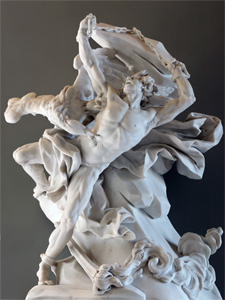
- In the end Daniel exclaims to Louis, “It was an adventure like I’ll never know in my whole life! You talk about passion, you talk about longing! You talk about things that millions of us won’t ever come to understand.” Discuss which Daniel is pleading for more. Is it vampirism? Or companionship? Why?
- What is Louis’ relationship to Babette? Why does he want to help her? What council does he offer her? Does Rice’s treatment of Babette involve anachronism? Could the women of New Orleans pre-Louisiana purchase inherit property? Did Rice make a mistake? Does Rice often make mistakes?
- Lord Byron’s Childe Harold's Pilgrimage is regarded as the introduction of the Byronic hero in literature. Some examples of the Byronic hero are Rochester from Charlotte Brontë’s Jane Eyre and Heathcliff from Emily Brontë’s Wuthering Heights. Discuss how Louis the Byronic hero ofInterview with the Vampire.
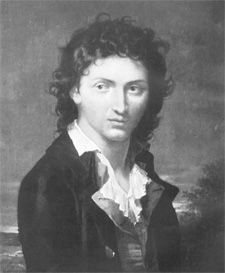
- The middle of the twentieth century witnessed the rise of propagandism through media, the atomic bomb, democracy as a global power; in effect, a Nuclear Age. Henri Nouwen in his book, The Wounded Healer, referred to humanity’s transition from the Pre-Nuclear to the Nuclear Age as one of the “Nuclear Man”, whose optimism for human future has shifted into meaninglessness, with strong emphasis on a carpe diem attitude; the generational tie, patrimony, lineage, these are no longer existential motivators, thus the Nuclear Man has shifted from parent to peer to better understand his directional purpose in life. Recall the second dialogue between Armand and Louis. Armand: “You are the spirit [of the age].” Louis: “I’m not the spirit of any age. I’m at odds with everything and always have been! I have never belonged anywhere with anyone at any time!” Armand: “This is the very spirit of your age... You reflect its broken heart.” Has Rice suffused vampiric lore, and consequently gothic fiction with this notion of the Nuclear Man?
- Modernist literature sought for existential meaning through ontological subjectivism and rejected that pursuit through epistemological objectivism, which ended the sense of realism and its tendency toward spiritual rhapsodies in Romantic literature. Postmodernism ceased the literary search for meaning in a Nuclear Age of seeming chaos, focusing instead on the question of meaning alone. In Interview With The Vampire, the vampire, Louis, concludes the interview by saying: “I wanted to be where there was nothing familiar to me. And nothing mattered. And that’s the end. There’s nothing else.” Louis’ interview is the tale of his life as a vampire. Discuss the questions Louis posits to Lestat and to Armand. Do these questions reflect the modernist’s search of meaning of the postmodernist’s doubt? Why? Is Louis the transition from modernist to postmodern literature? Does Rice employ Romantic, Modernist and Postmodern styles of writing inInterview?
- Joseph Sheridan LeFanu’s Carmella predates much gothic romance and is even considered as having a strong influence over Bram Stoker’s Dracula. However, unlike Dracula, the book’s titular hero, Carmella, can be considered the prototype of lesbianism in gothic fiction. Set as a contemporary novella for its time, Carmella also reflects the sexual attitudes and morality of the Victorian Era. In contrast, the sexuality throughout Interview With The Vampire hints at homoeroticism. In an interview with Salon on September 16, 1996, Rice stated, “On the homoerotic content of my novels... It is difficult for me to see the characters in terms of gender. I have written individuals who can fall in love with men and women. Obviously, my attitudes toward androgyny and erotic love of all kinds influence all of my novels.” With Rice being a postmodern author of gothic fiction, discuss the sexual morality and literary expression of our postmodernism as distinct from the Victorian Era.
- Lestat posits this question to Louis: “What do you think a vampire is?” He answers his own question by saying: “Vampires are killers... Predators. Whose all seeing eyes... see a human life in its entirety, not with any mawkish sorrow but with a thrilling satisfaction in being the end of that life, in having a hand in the divine plan.” Later, during the first meeting between Armand and Louis, after Louis had witnessed the performance at Théâtre des Vampires where “Gentleman Death” drained the lifeblood of a young woman on stage, Armand says to Louis, “I saw you in the theater, your suffering, your sympathy with that girl... you die when you kill, as if you feel you deserve to die.” Armand declares this Louis’ passion and sense of justice. In the early 1970s, Heinz Kohut coined the term Narcissistic Personality Disorder. Individuals of NPD manifest attitudes of authoritarianism and self-absorption. They are intolerant of reversals and criticism. They find empathy alien. Individuals of NPD are oblivious to the needs of others and ignorant of the effect their behavior causes others. Discuss why Louis is the hero ofInterview With The Vampire. Would Louis see himself as the hero? What characteristics set him apart from other vampires? Which other vampires exhibit personalities of NPD?
- Louis, the brooding, self-reflective, persistent misanthrope, is clearly the Byronic hero of Interview With The Vampire. With the previous discussion of postmodernism, the Nuclear Man, Narcissistic Personality Disorder, discuss the ramifications modernity will play upon the Byronic hero in literature. What has Rice brought to the Byronic hero through her character, Louis?
- Below is Rice’s favorite Blake poem. In what specific ways, if any, does her work reflect the themes of this poem?
To see a world in a grain of sand
And a heaven in a wild flower,
Hold infinity in the palm of your hand
And eternity in an hour.
A robin redbreast in a cage
Puts all heaven in a rage.
A dove-house filled with doves and pigeons
Shudders hell through all its regions.
A dog starved at his master's gate
Predicts the ruin of the state.
A horse misused upon the road
Calls to heaven for human blood.
Each outcry of the hunted hare
A fibre from the brain does tear.
A skylark wounded in the wing,
A cherubim does cease to sing.
The game-cock clipped and armed for fight
Does the rising sun affright.
Every wolf's and lion's howl
Raises from hell a human soul.
The wild deer wandering here and there
Keeps the human soul from care.
The lamb misused breeds public strife,
And yet forgives the butcher's knife.
The bat that flits at close of eve
Has left the brain that won't believe.
The owl that calls upon the night
Speaks the unbeliever's fright.
He who shall hurt the little wren
Shall never be beloved by men.
He who the ox to wrath has moved
Shall never be by woman loved.
The wanton boy that kills the fly
Shall feel the spider's enmity.
He who torments the chafer's sprite
Weaves a bower in endless night.
The caterpillar on the leaf
Repeats to thee thy mother's grief.
Kill not the moth nor butterfly,
For the Last Judgment draweth nigh.
He who shall train the horse to war
Shall never pass the polar bar.
The beggar's dog and widow's cat,
Feed them, and thou wilt grow fat.
The gnat that sings his summer's song
Poison gets from Slander's tongue.
The poison of the snake and newt
Is the sweat of Envy's foot.
The poison of the honey-bee
Is the artist's jealousy.
The prince's robes and beggar's rags
Are toadstools on the miser's bags.
A truth that's told with bad intent
Beats all the lies you can invent.
It is right it should be so:
Man was made for joy and woe;
And when this we rightly know
Through the world we safely go.
Joy and woe are woven fine,
A clothing for the soul divine.
Under every grief and pine
Runs a joy with silken twine.
The babe is more than swaddling bands,
Throughout all these human lands;
Tools were made and born were hands,
Every farmer understands.
Every tear from every eye
Becomes a babe in eternity;
This is caught by females bright
And returned to its own delight.
The bleat, the bark, bellow, and roar
Are waves that beat on heaven's shore.
The babe that weeps the rod beneath
Writes Revenge! in realms of death.
The beggar's rags fluttering in air
Does to rags the heavens tear.
The soldier armed with sword and gun
Palsied strikes the summer's sun.
The poor man's farthing is worth more
Than all the gold on Afric's shore.
One mite wrung from the labourer's hands
Shall buy and sell the miser's lands,
Or if protected from on high
Does that whole nation sell and buy.
He who mocks the infant's faith
Shall be mocked in age and death.
He who shall teach the child to doubt
The rotting grave shall ne'er get out.
He who respects the infant's faith
Triumphs over hell and death.
The child's toys and the old man's reasons
Are the fruits of the two seasons.
The questioner who sits so sly
Shall never know how to reply.
He who replies to words of doubt
Doth put the light of knowledge out.
The strongest poison ever known
Came from Caesar's laurel crown.
Nought can deform the human race
Like to the armour's iron brace.
When gold and gems adorn the plough
To peaceful arts shall Envy bow.
A riddle or the cricket's cry
Is to doubt a fit reply.
The emmet's inch and eagle's mile
Make lame philosophy to smile.
He who doubts from what he sees
Will ne'er believe, do what you please.
If the sun and moon should doubt,
They'd immediately go out.
To be in a passion you good may do,
But no good if a passion is in you.
The whore and gambler, by the state
Licensed, build that nation's fate.
The harlot's cry from street to street
Shall weave old England's winding sheet.
The winner's shout, the loser's curse,
Dance before dead England's hearse.
Every night and every morn
Some to misery are born.
Every morn and every night
Some are born to sweet delight.
Some are born to sweet delight,
Some are born to endless night.
We are led to believe a lie
When we see not through the eye
Which was born in a night to perish in a night,
When the soul slept in beams of light.
God appears, and God is light
To those poor souls who dwell in night,
But does a human form display
To those who dwell in realms of day.
Auguries of Innocence
William Blake
